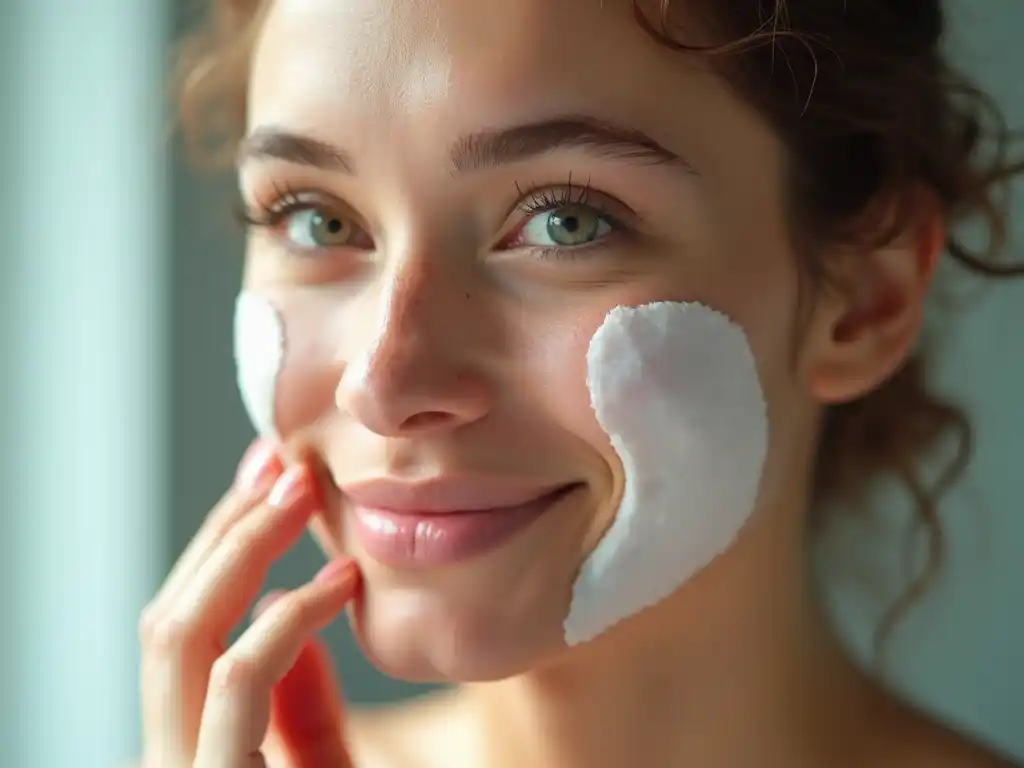Table of Contents
What is the best care for your skin? This question is on the minds of many people looking to achieve a healthy, glowing complexion. The truth is, taking care of your skin doesn’t have to be complicated or expensive.

With the right knowledge and a consistent routine, you can give your skin the care it deserves. Let’s break down the essentials of skin care and explore the best practices for keeping your skin looking its best.
Understanding Your Skin Type : What is the best care for your skin
Before diving into specific products and routines, it’s important to know your skin type. This knowledge will help you choose the right products and avoid those that might irritate your skin.
There are five main skin types:
- Normal: Not too oily or dry, with few imperfections
- Oily: Shiny and prone to acne
- Dry: Flaky, itchy, or rough
- Combination: Oily in some areas (like the T-zone) and dry in others
- Sensitive: Easily irritated and prone to redness
Once you know your skin type, you can tailor your skincare routine to address your specific needs.
The Three Pillars of Skin CareThe best care for your skin revolves around three main steps:
- Cleansing: Removing dirt, oil, and impurities
- Moisturizing: Keeping your skin hydrated
- Protecting: Shielding your skin from sun damage
Let’s look at each of these in more detail.
Cleansing: The Foundation of Healthy Skin
Cleansing your skin twice a day (morning and night) is crucial for removing dirt, excess oil, and dead skin cells. Choose a gentle cleanser that won’t strip your skin of its natural oils. For oily or acne-prone skin, look for cleansers with salicylic acid. If you have dry or sensitive skin, opt for a creamy, hydrating cleanser.
Moisturizing: Hydration is Key
After cleansing, apply a moisturizer to keep your skin hydrated and supple. Even if you have oily skin, don’t skip this step – just choose a lightweight, oil-free moisturizer. For dry skin, look for richer creams with ingredients like hyaluronic acid or ceramides.
Protecting: Sunscreen is Non-Negotiable
The single most important step in your skincare routine is applying sunscreen. Sun damage is the leading cause of premature aging and can increase your risk of skin cancer. Use a broad-spectrum sunscreen with at least SPF 30 every day, even when it’s cloudy or you’re staying indoors.
Additional Steps for Optimal Skin Care
While cleansing, moisturizing, and protecting form the foundation of good skin care, there are additional steps you can take to boost your skin’s health:
- Exfoliating: Once or twice a week, use a gentle exfoliant to remove dead skin cells and reveal brighter skin. Be careful not to over-exfoliate, as this can irritate your skin.
- Using serums: These concentrated products can target specific skin concerns like fine lines, dark spots, or acne. Apply them after cleansing but before moisturizing.
- Applying eye cream: The skin around your eyes is delicate and prone to showing signs of aging. A good eye cream can help keep this area hydrated and reduce the appearance of fine lines.
- Face masks: Weekly face masks can give your skin an extra boost of hydration or help with specific concerns like oiliness or dullness.
Lifestyle Factors for Healthy Skin
Remember, the best care for your skin isn’t just about what you put on it – it’s also about how you treat your body overall. Consider these lifestyle factors:
- Stay hydrated: Drink plenty of water throughout the day to keep your skin hydrated from the inside out.
- Eat a balanced diet: Foods rich in antioxidants, omega-3 fatty acids, and vitamins can contribute to healthier skin.
- Get enough sleep: Your skin repairs itself while you sleep, so aim for 7-9 hours each night.
- Manage stress: High stress levels can lead to skin issues, so find healthy ways to relax and unwind.
- Exercise regularly: Physical activity boosts circulation, which can give your skin a healthy glow.
Common Skin Care Mistakes to Avoid
As you develop your skin care routine, be aware of these common mistakes:
- Over-cleansing: Washing your face too often or with water that’s too hot can strip your skin of natural oils.
- Skipping sunscreen: Even on cloudy days or when you’re indoors, your skin needs protection from UV rays.
- Using too many products: Sometimes, less is more. Using too many products can irritate your skin.
- Not removing makeup before bed: Always cleanse your face before sleep to avoid clogged pores.
- Touching your face frequently: This can transfer bacteria and oils from your hands to your face, leading to breakouts.
When to See a Dermatologist
While a good at-home skin care routine can address many concerns, some issues require professional help. Consider seeing a dermatologist if you experience:
- Persistent acne
- Unusual moles or skin changes
- Severe dryness or irritation
- Signs of premature aging that don’t respond to over-the-counter products
A dermatologist can provide personalized advice and treatments tailored to your specific skin needs.
Conclusion
The best care for your skin involves a combination of understanding your skin type, following a consistent routine, and making healthy lifestyle choices. Remember, everyone’s skin is unique, so what works for someone else might not work for you.
Be patient and willing to adjust your routine as needed.By focusing on cleansing, moisturizing, and protecting your skin – and avoiding common skincare mistakes – you’ll be well on your way to achieving and maintaining healthy, radiant skin. With time and attention, you can develop a skincare routine that keeps your complexion looking its best for years to come.

